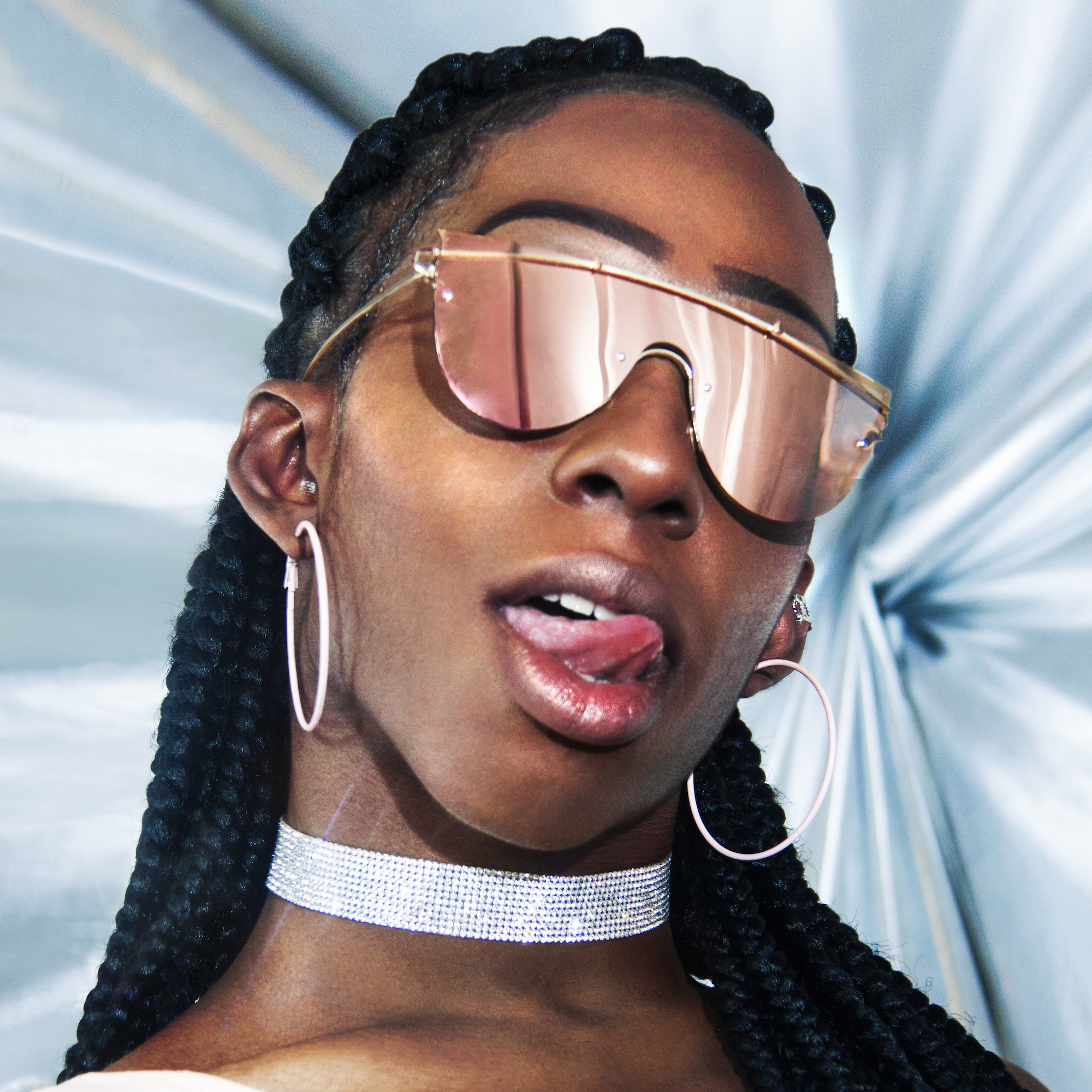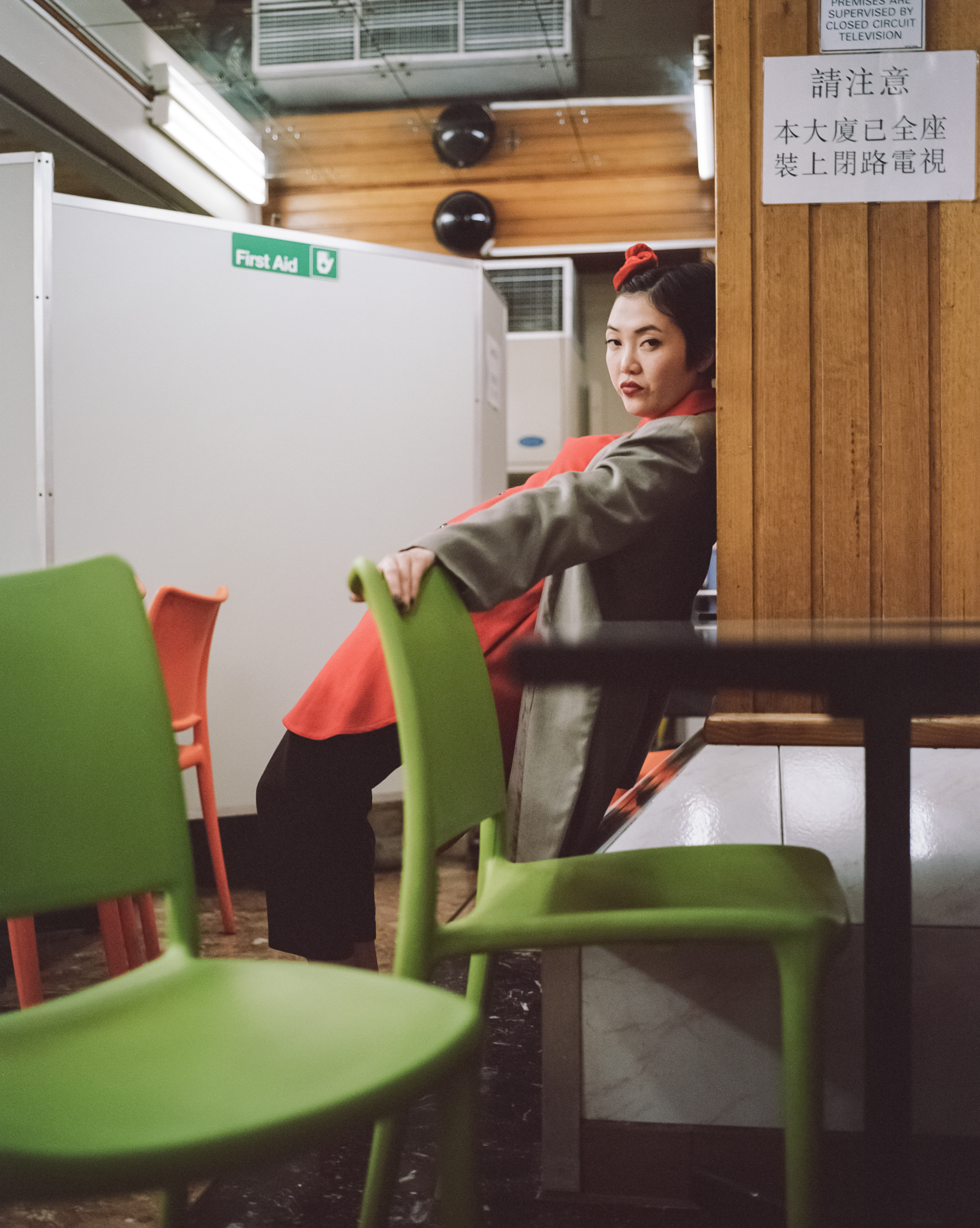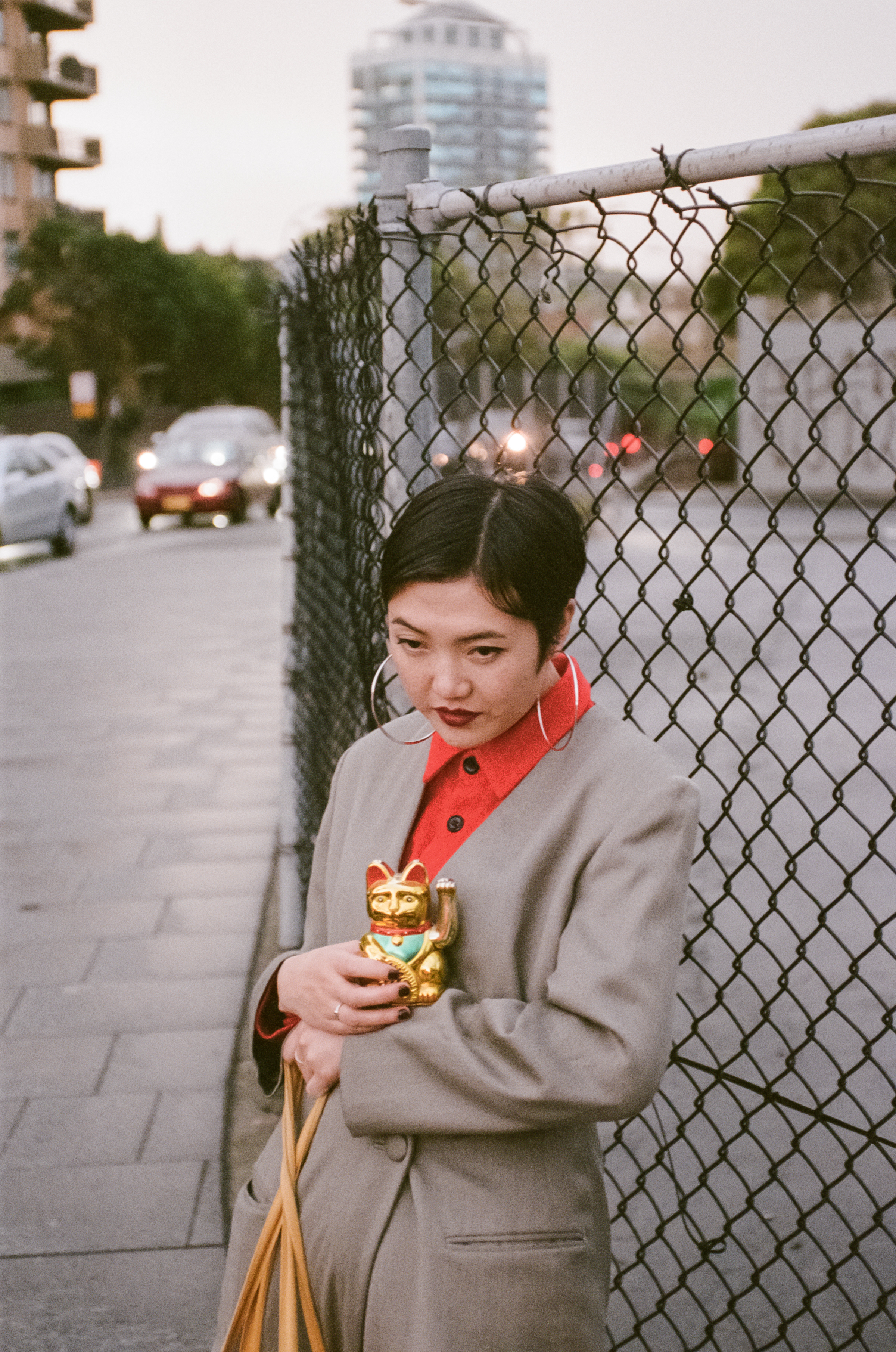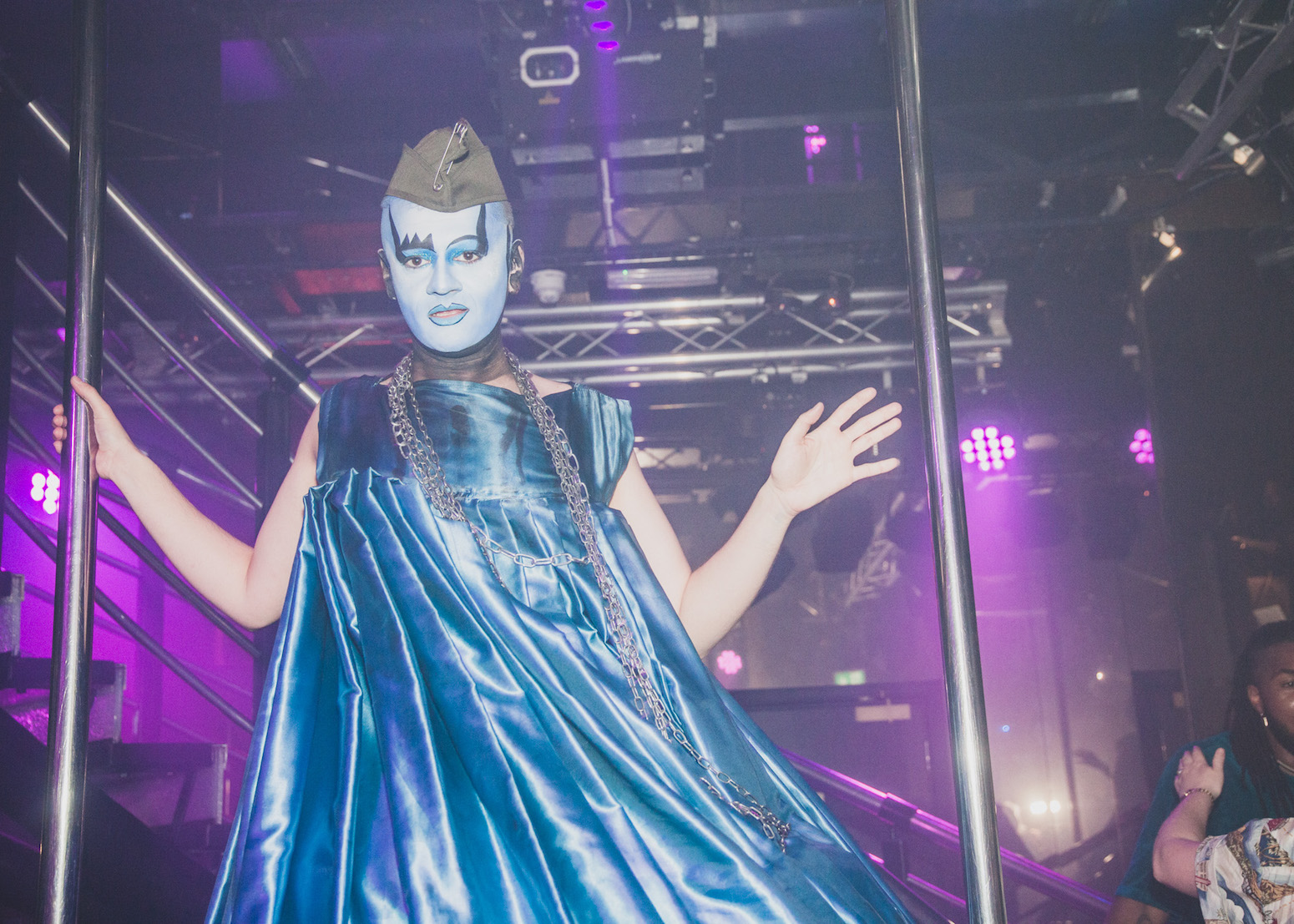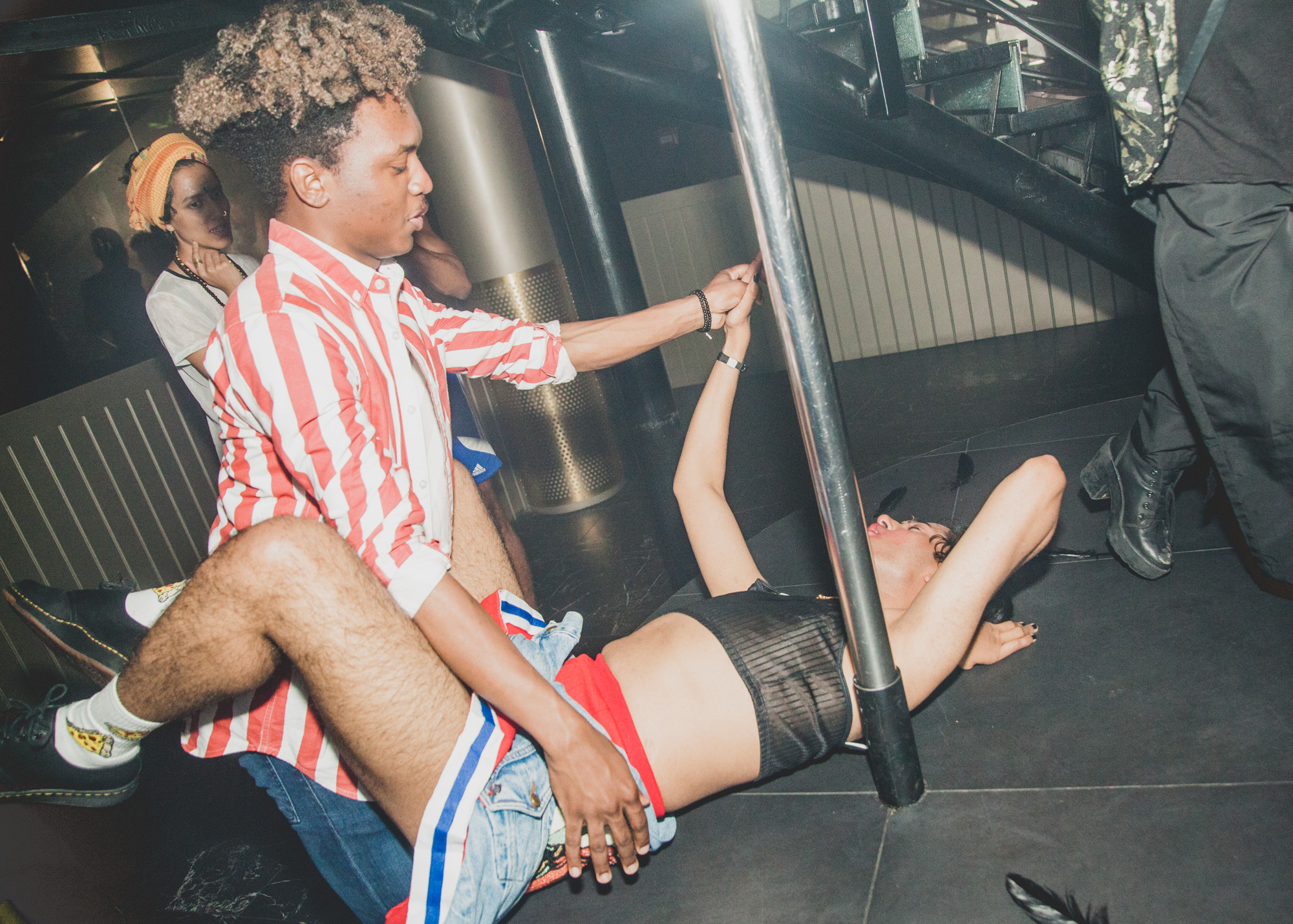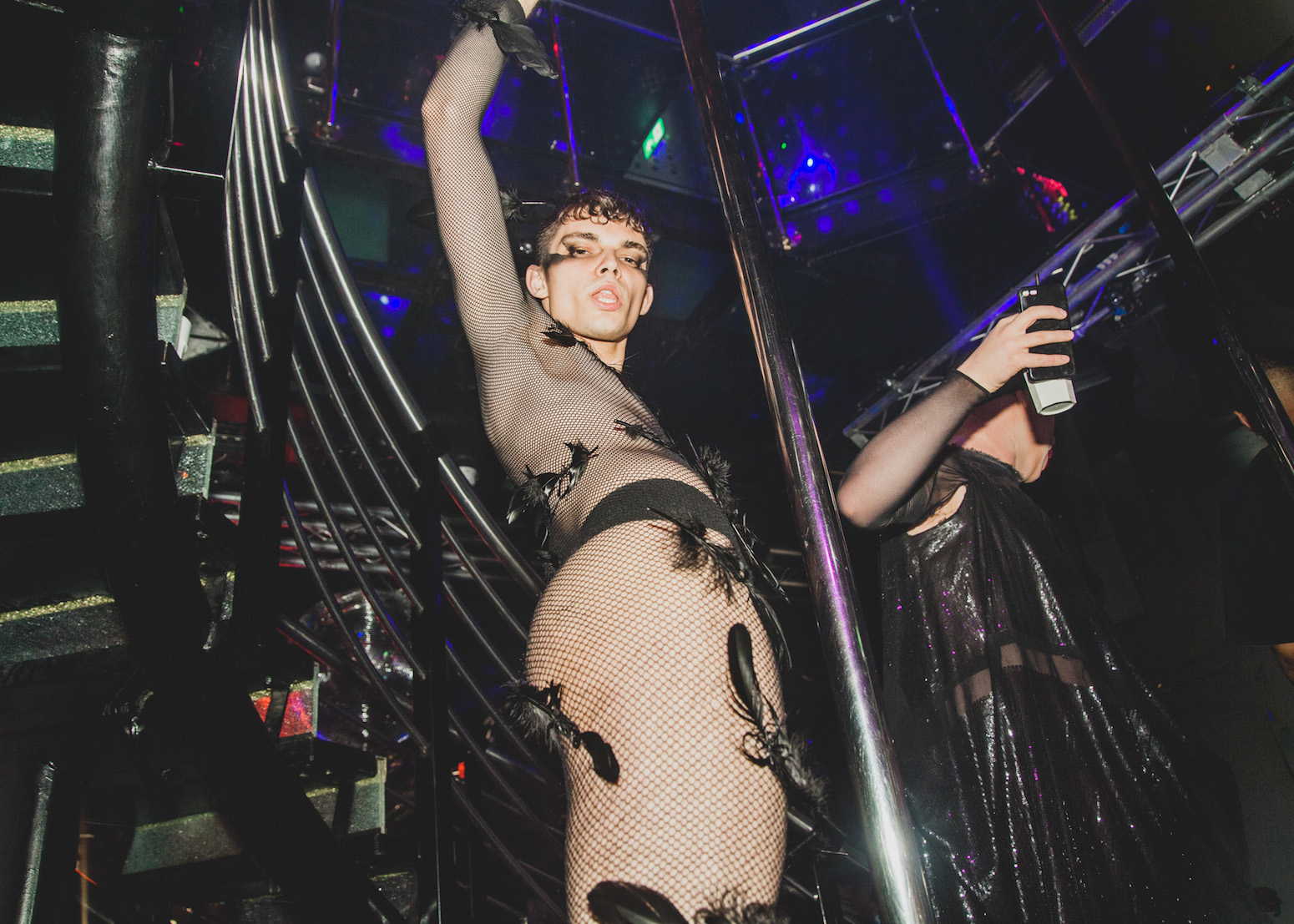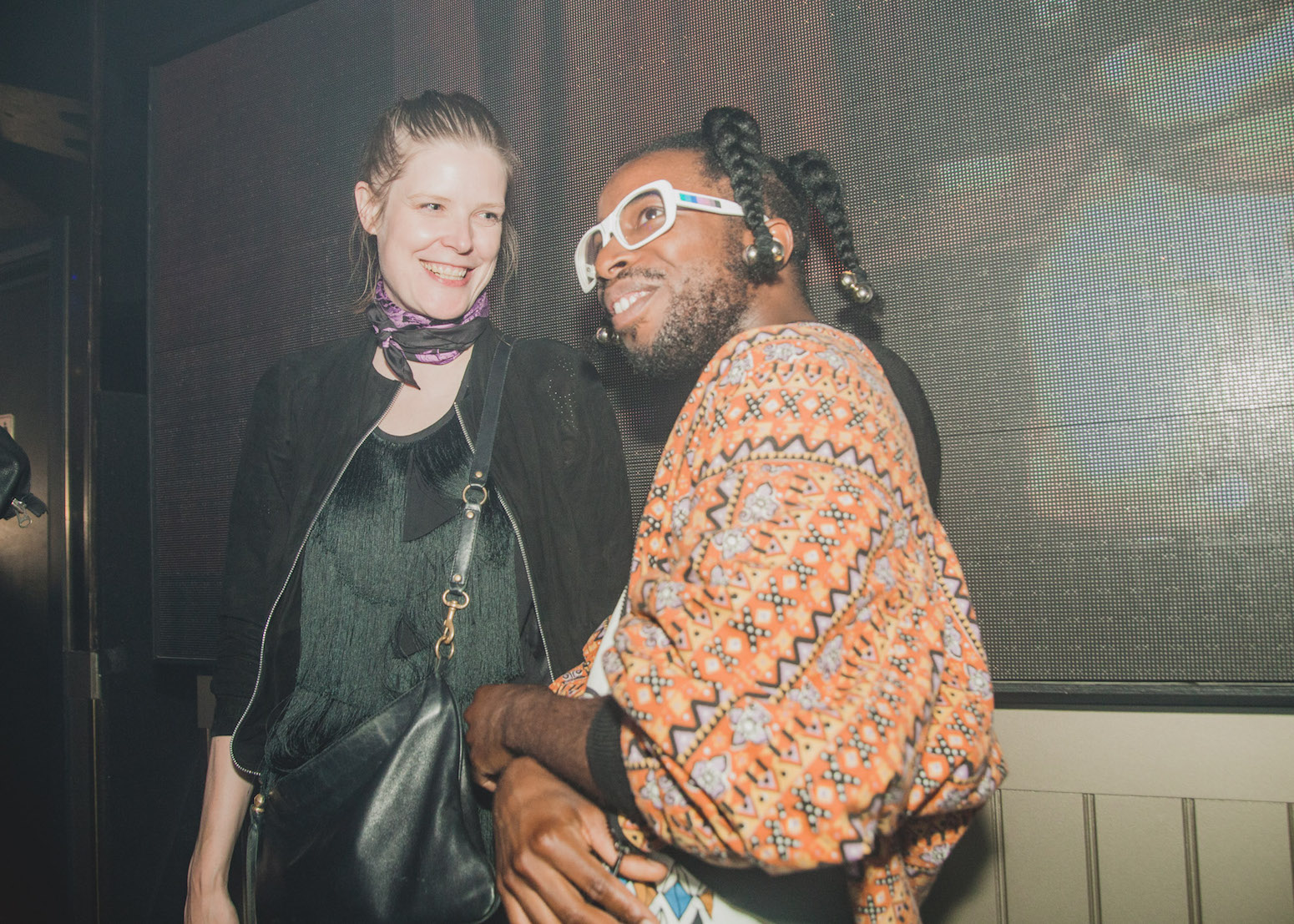Alice Skye and Emily Wurramara are in soft contrast to each other, and this soft contrast makes for the perfect joint tour. Emily is an island woman, hailing from Groote Eylandt, Alice a landlocked Wergaia and Wemba Wemba river woman. Alice, who opens their set, seemingly spends most of her time in her head, and her music forces you to get in yours. More than once, I catch her staring at her keyboard or at the ceiling, and wonder what she could be thinking about with a room full of people staring at her. I am not sentimental, but towards the end of Alice’s performance in Brisbane, I found myself in tears. She was singing a song about a Gariwerd, a particular mountain range from my home. Her debut album, Friends with Feelings, is melancholy and haunting, but doesn’t leave you feeling depleted. It’s hopeful, too. The same can be said for Emily’s music: while I found myself crying to Alice’s set, during Emily’s I found myself dancing. Emily’s album Milyakburra isn’t without pain or reflection, but it’s upbeat. Songs like “Yimenda-Papaguneray (Turtle Song)” evoke joy and movement. Her set itself is a frenzy: there’s constant dancing in the audience, and Emily swaps between acoustic and electric guitars.
This duality between them both is, in some ways, revolutionary. Both musicians occupy joy and pain and refusing to choose between the two. Together they beckon the listener to hear and see them as humans capable of complexity. Alice herself acknowledges this in her song “Poetry By Text” when she says “Let me tell you about science and art.” Mainstream audiences rarely see complex black women. Particularly in entertainment, black women are often positioned as palatable rather than political, which is why we see black artists like Jessica Mauboy singing the national anthem or performing in Eurovision. It’s difficult to garner mainstream support and be explicitly, publicly pro-black at the same time.
Nobody is immune to this: even Beyonce had to work over fifteen years in the industry before she could tell us to “fuck a false arrest,” and load her film clips with political imagery. Black women are rarely afforded complexity or encouraged to be complex. They are expected to perform a safe type of blackness and not make audiences feel uncomfortable. Neither Alice nor Emily are interested in this. Halfway through her set, Emily stops performing to speak to the audience. She calls for quiet, and starts talking about her home. She sings about Groote Eylandt’s fight and victory against BP, and forces the predominantly white crowd to wrap their tongues around her language. Alice has almost lost her voice by the time she’s performing, but still performs anyway. She still wanted to give back to the audience that had shown up for her. There are some notes she can’t reach, her voice straining, but she seemingly isn’t interested in being perfect: instead, she’s striving for something authentic, to be seen just as she is. Despite their differences, there is much Emily and Alice have in common. Their voices, despite Alice losing hers, are both beautiful. I have not seen anyone force a room into stillness the way Alice does. I have not seen a room come together the way they do when Emily is singing.
Both of these women are incredible performers, and these shows together are the first time they’re touring as mothers. If they’re nervous, you can’t tell. These two women may be incredible black performers, and black women may seem themselves reflected deeply in their music, but Alice and Emily are for everybody. The two embody sisterhood, clearly quite affectionate in the way they join each other onstage and embrace during the show. This sort of love between black women is also revolutionary. Witnessing them perform together is like being around the table listening to your aunties tell their yarns. It’s special: it feels warm in your heart, and when it’s over you aren't quite ready to leave yet.
Noisey: Thank you for last week. I found myself being really introspective and inside myself for your set Alice and then your set Em got me outside my head. Was that something you two thought about? The light and shade of your music together?
Alice Skye: I hadn’t really thought about it before but I love that.
Emily Wurramara: Not at all! That’s actually really interesting and beautiful you felt that way.
Alice: A big thing about the tour was highlighting our similarities but also the differences between us. So I love that we offer different things when it comes to bein’ live.
How did you two meet?
Emily: We met in Adelaide for a festival two years ago.
Alice: It was cute. Em, I remember you messaging me on Insta.
What did she say?
Alice: [She said] "Come to my hotel room I'm in number 315," so I go up and I'm knockin’ on room 315 forever and no answer. Then [she] messaged me, "Shit, sorry, room 513 lol."
Emily: Yes! Then I realised I gave her the wrong room number.
Why did you message her Em?
Emily: Well, I really was inspired by Alice and being at the same show I was like “Omg we have to hang out,” I loved her presence, her vibes, and she just had such a welcoming personality. I really vibed with her at the show. And then when we hung out [and] it was just like kicking back with another sister.
I guess in your industry it must be so hard to find other black woman on your same wavelength and when you find them you have to really latch on.
Emily: Oh definitely! It’s so hard to come across sisters in the industry who just “get it”.
Alice: Totally. I find the music industry so fucken scary, so having someone that gets what it's like to be young and be female and be black is life changing, honestly.
I was talking to a tidda yesterday and she was talking about the pressure to feel perfect, and present as palatable.
Alice: Yes! I was talking to another sister about how when you're young and perceived as kind of sweet and nice, as soon as you stand up for yourself people think you're being a "bitch" or being rude as but you're just trying to look out for yourself. I get that heaps cause I've always been a serial people-pleaser––but now I’m learning to say no and have boundaries for myself, and some people don't like it.
Emily: It really feels like a sisterhood.
Alice: Totally, I was so proud of you Em when you asked those people to just give you a minute on stage to talk. It was fucking deadly.
Emily: You honestly feel that! You are constantly pleasing other people, and you constantly have to remind yourself that you’re only human. You can only do so much. Seriously though, I can’t stand when people [talk during performances], our music tells stories and if you’re there, you’re there to listen, to feel and to share.
Alice: Yeah, I find it so emotionally taxing to perform. which sometimes makes me feel like "Why am I choosing to do this?"
Why do you do it? When does it feel worth it?
Alice: Without music I wouldn't be able to process stuff. I'm not good at communicating my feelings with people, so I spend a lotta time in my own head and writing was just a way of getting that out. Being able to connect with people like Em has made it so worth it and just connect with people who find my music helpful for them.
Emily: For me, music started when I went back home and saw there were no female singers or songwriters so I was like pretty much, “Fuck it, I’m gonna do it.”
How did you learn to play?
Emily: I’m self taught in guitar, keyboard and ukulele, but I learnt saxophone, violin and flute. It’s what I had to do to prove myself to my community and the men back home, I remember two years ago I went back and my uncle handed me an electric and was like “If you play this like I do then you can jump on stage,” so I did.
That's so cool. What about you Alice?
Alice: I started playing piano real young cause my big sister was learning and I just wanted to be like her.
Are you excited for Sydney?
Alice: I'm stressed as hell about it trying to organise everything. No one ever tells you how stressful being an artist is.
Emily: It’s so stressful, the things you have to organise! But I’m so excited for Sydney!
Alice: Yeah I'm excited! I already miss ya Em so can't bloody wait.
You must get so close touring, experiencing these wild and fun times together.
Alice: I've never toured before so playing shows where people have come actually to see you and not by accident or to see someone you're supporting is really cool.
Emily: It’s great, Alice is literally like my long lost sis. We talk about everything, and to be able to share this tour with such an iconic artist and human being is my absolute honour. Australia needs to see this, we’re two young Indigenous women doing what we love. And you’re killing it sis!
Alice: You’re killin it!
Is this your first tour as a mum, Em?
Emily: It is sis, and it’s so hard leaving bub at home but I’m not just doing it for me and her. I feel I have a responsibility to be a role model for all the young women around the world especially in my community, it’s heavy but shit needs to be done.
You make it look easy but I'm sure it's fucken tough. Not to mention all the other things that come with being a black mother.
Emily: It’s so tough! The amount of stereotypes and things people say so easily, it can hurt but you’ve just got to deal with it.
Alice: Well since we're on the note of Em and how much of a rockstar mum she is, [she's] the highlight of the tour for me.
Emily: Stop, I love you.
Alice: I was just lying in bed with Em and little K'iigari and watching Em sing to her and just laid there and cried. It was so beautiful. I’m not good at shoutouts but I love my mum and my sisters and women are amazing.
Emily: Aw, I can’t wait to see you! Shoutout to all the young sisters out there, your ancestors got your back.
Follow Nayuka on Twitter.
